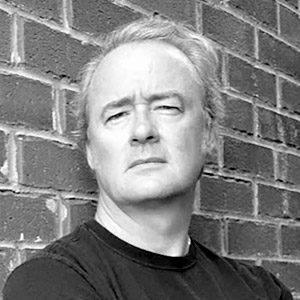Forget it.
Two years ago, in a limitless and sunny August when a global pandemic seemed like an impossibility, my daughter and I knocked on doors for the Democrats in Portland, Maine.
We were using a list of registered Democrats living in a tidy West Portland neighborhood. The houses weren't terribly big, but nor were they terribly small. They were average. Middle America.
The people behind the mostly-unlocked doors were uniformly nice, and prototypically Democrat: single-Mom nurses, retired male government employees, nervous-looking new American citizens with pronounced accents and little kids swarming around their knees.
My daughter and I loped from door to door, a couple Canadian progressives intent on finding mid-term American progressives who detested Donald Trump, just as we did. What we encountered surprised us. Worried us, even.
We had thought it would be easy. Trump had been in the news two years ago, as he always is, threatening to take away American birthright citizenship. Or scheming to gut the Affordable Care Act or shrugging off allegations of Russia-Trump electoral fraud, then still a live issue.
But the folks we met on the doorsteps didn't want to talk about any of that. One elderly fellow, his grown daughter at his elbow, said he was a proud Democrat, "up and down the ticket," as the Americans like to say.
"We're Democrats. But don't keep telling me what Trump has done wrong," this man said, as his daughter nodded vigorously. "Forget it. Tell me what you're going to do."
"Forget it." After a few such encounters, my daughter and I retreated to the sidewalk. She had the best assessment: "It's not that they don't dislike Trump," she said. "It's like they've just forgotten all the millions of bad things that he's done."
The Democratic thinker David Shenk had a name for this phenomenon: data smog. Every day, via the Internet, regular folks like the ones found in that Portland, Maine neighborhood get bombarded by hundreds of thousands of words and images. It is overwhelming and relentless, and in the Trump era, it has gotten even worse.
So, Shenk postulates, people voters, in our case just tune it out. There's too much information, too often. It's data smog. So they turn it off.
And then they forget about it.
On Sunday, the New York Times filled an entire ten-page section of their newspaper with a stirring editorial about Trump's myriad crimes, political and legal. I scanned it. There were so many of them, I had forgotten about most. There are too many to list here, even partially.
The Times editorial board acknowledged this reality. "The enormity and variety of Mr. Trump's misdeeds can feel overwhelming," they wrote. "Repetition has dulled the sense of outrage, and the accumulation of new outrages leaves little time to dwell on the particulars. This is the moment when Americans must recover that sense of outrage."
When I ran winning war rooms for Jean Chrétien and Dalton McGuinty, I would always tell the youngsters who worked there the same thing, over and over: "We have a national memory of seven minutes," I'd tell them. "The job of any good war room is to remind voters about the bad things the other side did. Because they forget."
It's not that voters are dumb. In my quarter-Century experience of running political campaigns, my conviction remains that voters are always smart and intuitive and aware. Always.
It's just that they're, well, busy: ferrying kids to hockey games and ballet practice, trying to get across town to work or an appointment, catching up on sleep after worrying all day about mortgage or rent payments. They're busy.
And in the midst of a brutal global pandemic, it's gotten even worse.
So they don't scrutinize political parties' shiny multi-page election platforms. They don't listen to speeches. They barely watch entire debates. And they forget things.
It's normal, to forget. It's human. It's a survival mechanism.
In the Trump era, we forget things even more. The terrible things he has done, in particular. Because there have been too, too many.
If Donald Trump somehow squeaks out another victory thereby throwing America into further chaos and division, hastening it's end, and further destabilizing a world in disarray it will be mainly because of one insight about voters, about humans, that he knows better than anyone else alive:
We forget.






